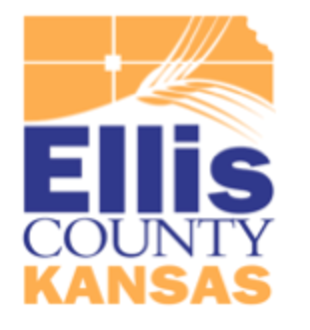By JONATHAN ZWEYGARDT
Hays Post
Ellis County residents will be asked to vote on a pair of sales tax questions next April after the county commission approved a resolution Monday calling for a mail ballot election.
Voters will get to vote on two quarter-cent sales tax questions. If both measures were approved by the voters, it would increase the sales tax in Ellis County by a half-cent.
After month of discussion, the commission settled on a quarter-cent directed specifically for health care services and a quarter-cent general sales tax.
If both sales taxes pass, the measures would generate about $2.2 million annually.
The health care services sales tax would generate approximately $1.5 million a year. Ellis County would also keep about $645,000 in general sales tax with the cities of Hays, Victoria, Ellis and Schoenchen dividing about $900,000 dollars.
It is projected the city of Hays would get $761,360 per year in tax revenue.
The taxes would sunset after 10 years.
County Administrator Phillip Smith-Hanes said Tuesday on the KAYS Morning Show that Ellis County is one of just a handful of counties in Kansas that do not have a countywide sales tax.
The mail ballot election will be April 7 and, if approved, the county could start collecting revenue by the end of the year.
County Commissioner Dustin Roths said Monday he likes that the vote will come before officials begin working on the 2021 budget.
“If we had to do another budget next year without knowing whether or not funds are available, there are some departments that would see massive cuts if not completely dissolving,” Roths said.
The added revenue could help the county fix many of its budget issues. At Monday’s meeting, Public Works Director Bill Ring and IT Director Mike Leiker asked the commission to approved significant equipment purchases and said that the fund that goes to pay for equipment upgrades has enough money in it to pay for 2020 purchases — but after that, those funds are drying up.
Smith-Hanes said Tuesday funding such purchases could be a challenge in the future.
“Having an additional source of revenue would go along way helping that,” Smith-Hanes.
He added that in the past the commission made the decision to not transfer as much into the capital equipment fund in an effort to avoid laying people off.
In 2013, voters approved a half-cent sales tax to fund several building projects in Ellis County. The funds paid for the construction of the county Emergency Services building and improvements to the county jail, the Law Enforcement Center and the County Administrator Building at 718 Main in Hays.
The sales tax was allowed to sunset in fall 2018 when the projects were paid off.
Similar to last vote, county employees will hold information sessions throughout the county to allow voters to ask questions and air concerns.
“Us three must continue to understand that this could not pass, both of them could not pass, one could pass and the other not,” Roths said. “I think the discussions we have with the citizens of this county about what might happen if we are forced to make some hard decisions next year are important for them to know and understand before the election.”
Smith-Hanes said Monday the election is expected to cost $20,500. He also recommended sending out an informational mailer to voters for a cost of $3,525.
The commission will use money set aside in a contingency fund in the 2020 budget.
In other business, the commission approved the trade-in of three graders from Public Works to go to the purchase of two new graders from Foley Equipment for $421,000. The funds to pay for the graders were placed in the capital equipment fund.
The commission also approved the purchase of two storage arrays and two servers for $69,697 from Dell. $65,000 of those funds came from the Register of Deeds office.
Commissioners also decided not to go forward with a study on user fees and contracted services. Smith-Hanes estimated it would cost between $28,500 and $52,000, and all three commissioners agreed it was not worth the high price.
The commission will not meet again until Tuesday, Oct. 1, for a work session.
The next commission meeting will be Monday, Oct. 7.
